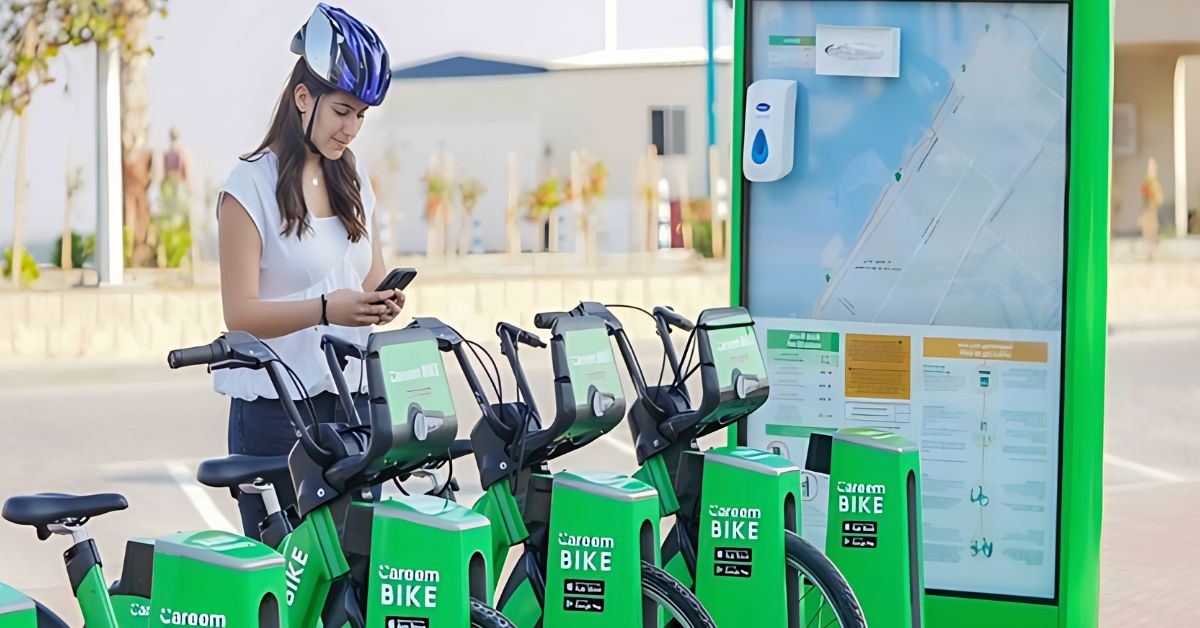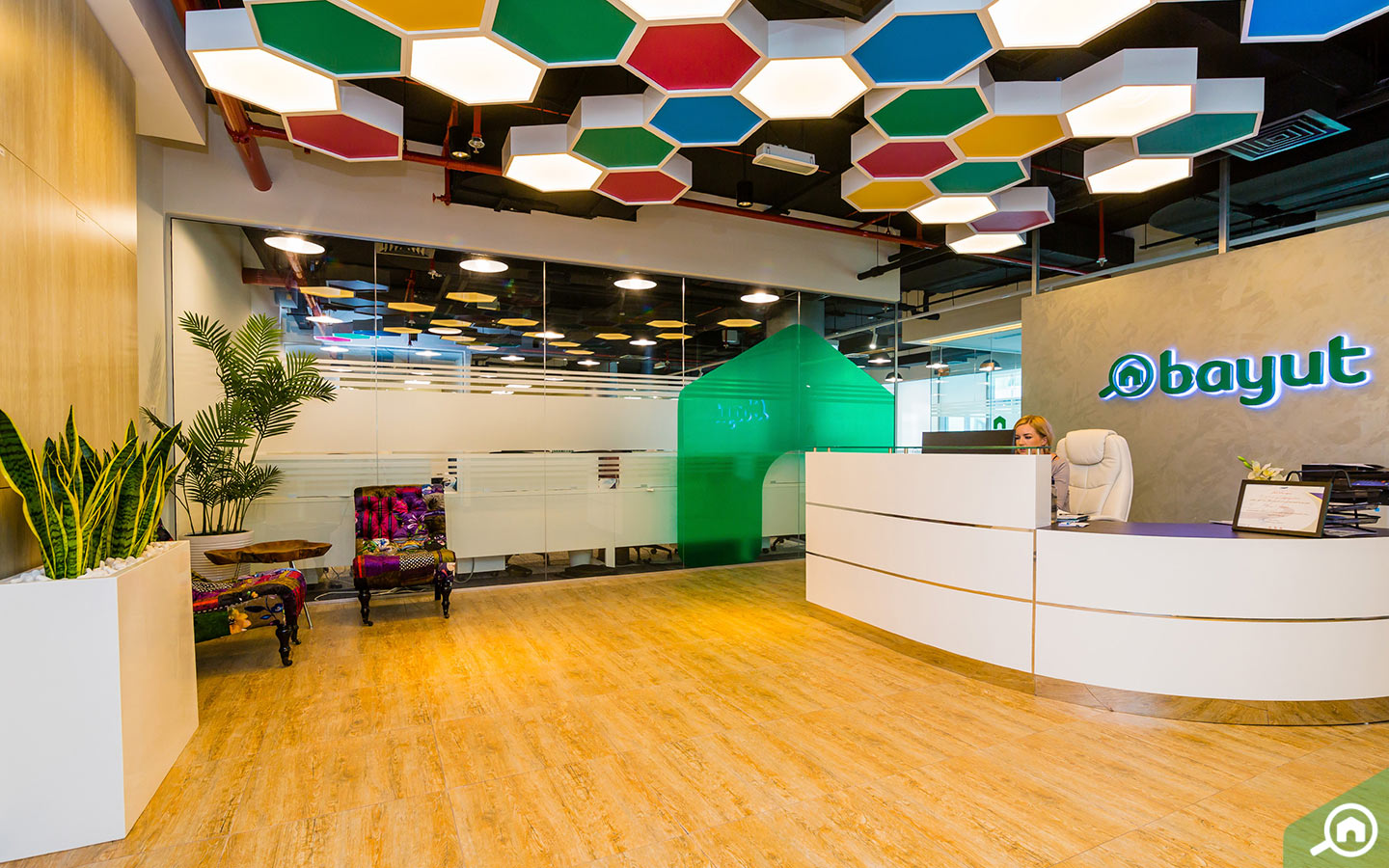DUBAI — The UAE startups are increasingly looking to Saudi Arabia to accelerate their growth stories for several compelling reasons. The most important factor is that Saudi Arabia is the largest economy in the Gulf region and has a significant population. Its large consumer base offers startups the opportunity to scale their operations quickly and tap into a sizable market.
Having operations in both the UAE and Saudi Arabia can provide significant advantages to startups or small and medium-sized enterprises (SMEs) seeking to expand and rapidly gain a foothold across the Gulf Cooperation Council (GCC) region.
The UAE and Saudi Arabia are the largest economies in the GCC, serving as economic powerhouses for the entire region. By establishing operations in both countries, SMEs gain access to substantial consumer markets, which can act as a springboard for expansion into neighboring GCC countries.
Both Gulf countries are strategically located within the GCC, making them ideal hubs for logistics and distribution. These countries boast well-developed transportation infrastructure, ports, and airports, facilitating the movement of goods and services across the region.
The UAE and Saudi Arabia have relatively stable economies compared to some other GCC countries. This stability provides SMEs with a safe and reliable business environment in which to operate and grow.
Speaking to TRENDS, Ryaan Sharif, General Manager at Flat6Labs UAE, highlighted a key advantage startups have over larger enterprises: their agility. “Startups can afford to fail, and as long as they fail fast and rapidly turn setbacks into learnings that enable them to fine-tune their value proposition, they will emerge stronger and more attractive to customers. And there are perhaps no better countries than the UAE and Saudi for startups to execute such strategies. Guided by their governments, these nations are hungry for innovation, and perpetually ready to give the latest trend a fair chance. Setting up shop in these nations, therefore, enables startups to gain the invaluable experience they need to hone their offering,” Sharif explained.
He added that these countries also offer small businesses a host of advantages – strategic geographic coverage, diverse market insights, access to funding, networking opportunities, regulatory familiarity, cultural awareness, infrastructure utilization, learning, and ecosystem synergy.
UAE offers ideal ecosystem for startups
The UAE is an economic and transportation hub in the Middle East and North Africa (MENA), where it has seen extraordinary expansion in tech startups. Ryaan Sharif noted, “The MENA region offers a diverse customer base that is more tech-savvy than average because of the region’s relatively young demographic. This should attract tech startups, which are primed to capture market gaps through the latest niche consumer app or efficiency-driving B2B platform.”
Sharif mentioned that prime among the reasons why the country is so promising for startups is the emphasis the government places on supporting the success of the sector. “The UAE’s leadership provides SMEs and entrepreneurs with an atmosphere that is the right mix of ‘getting out of the way’ (light regulation and taxation) and ‘getting involved’ (providing competent advice, mentoring, and financial support).”
Brian Habibi, Co-Founder & Chief Customer Officer at Bayzat, said that a major factor is the incredible support for the startup ecosystem provided by the UAE government. “This is evidenced in the number of initiatives and business-friendly laws in the country. For example, as part of its Entrepreneurial Nation program, the UAE’s leadership aims to develop more than 8,000 SMEs and startups by 2030 with the goal of creating 20 startups valued at more than $1 billion by 2031.”
Habibi added, “Then there is the access to world-class talent. To be disruptive, startups rely on being able to attract highly talented and motivated professionals. The UAE is expected to retain its status as the fastest-growing population in the MENA region; by 2026, the population is expected to grow by 20%. This growth is a testament to the country’s leading position in terms of quality of life and business friendliness across the MENA region.”
Saudi Arabia offers natural progression
With a GDP of more than a trillion US dollars, Saudi Arabia is by far the largest economy in the Middle East. Sharif noted that the country is also undergoing transformation at an unprecedented pace and scale. Vision 2030 is clearly aimed at promoting economic diversification, which makes the country ripe for innovation-focused businesses. The proximity to the UAE makes it the next logical step for UAE-based startups looking to expand their regional footprint. They are able to adapt their learnings from the Emirates, and leverage their established teams to rapidly gain a foothold and execute on a land and expand strategy.
Habibi commented, “A central pillar of Saudi Arabia’s Vision 2030 is to transform the SME sector into an engine for economic growth. The government’s target is for SMEs to account for 35% of GDP, up from 20% in 2016. The employee count of the SME sector has grown over 22% since 2017, and their contribution to GDP is now over 29%. As demonstrated in the UAE, such support from the government is key to the success of startups.”
“That said, the ecosystem in the UAE is still better suited to early-stage growth while Saudi businesses and investors demonstrate a greater level of confidence once businesses have surpassed a certain critical scale. In the case of Bayzat, this was our Series C round during which we managed to draw in the support of prominent Saudi investors. This backing meant that we not only received the funding necessary to fuel our expansion into the Kingdom but are also able to draw on the local insight and guidance of these local investors to accelerate and optimize our growth.”

Challenges
While the UAE and Saudi Arabia generally have a strong and cooperative relationship, there are still several challenges and issues that can affect their business ties.
Trade Barriers: Trade barriers, including tariffs, non-tariff barriers, and regulatory differences, can hinder the smooth flow of goods and services between the two countries. Harmonizing trade policies and reducing these barriers can promote more extensive business ties.
Economic Diversification: Both countries are actively working on diversifying their economies beyond oil and gas. While this diversification presents an opportunity for collaboration, it can also pose challenges if there is competition in similar sectors.
Cultural Differences: Cultural differences can sometimes lead to misunderstandings or miscommunication between businesses in the UAE and Saudi Arabia. It’s crucial for companies to effectively navigate these differences to build successful business relationships.
Legal and Regulatory Differences: Differences in legal systems and regulatory environments can be challenging for businesses operating across borders. Companies must navigate varying legal requirements in each country to ensure compliance.
Access to Finance: Ensuring access to adequate financing for businesses can be a challenge. Both countries are working to enhance their financial systems, but SMEs, in particular, may face challenges in securing funding for cross-border ventures.
Labour Market Issues: Differences in labour laws and policies can impact the movement of workers and skilled professionals between the two countries. Ensuring the smooth flow of talent can be a challenge.
Most successful UAE startups with presence in Saudi Arabia
Startups based in the UAE have effectively expanded their presence into Saudi Arabia, the largest market in the GCC, as well as other Middle Eastern markets. Here are a few notably successful ventures:
Careem: Established in Dubai in 2012, Careem is a prominent ride-hailing and delivery platform across the Middle East and North Africa. Expanding into Saudi Arabia in 2013, Careem has solidified its position as the dominant ride-hailing app in the Kingdom, boasting a market share exceeding 80%. Estimated revenue for Careem in Saudi Arabia reached approximately $1 billion in 2022.
Fetchr: Originating in Dubai in 2012, Fetchr, a logistics and delivery startup, commenced operations in Saudi Arabia in 2016, specializing in innovative last-mile delivery solutions. While the company’s market share in Saudi Arabia is around 10%, specific revenue figures were undisclosed. However, Fetchr secured $15 million in funding in 2020, indicating significant growth.
Beam Wallet: Launched in the UAE market in 2012, Beam Wallet is a mobile payment and rewards app that extended its services to Saudi Arabia and other parts of the Middle East. Beam Wallet boasts over 1 million users in the region. The company raised $23 million in funding in 2023.
SellAnyCar.com: Established in the UAE in 2013, SellAnyCar.com expanded its car-selling services to Saudi Arabia with the launch of Kayishha in 2020. SellAnyCar.com claims to be the largest used car marketplace in the region.
Property Finder: Although primarily a UAE-based real estate platform, Property Finder expanded its presence into Saudi Arabia by acquiring eSimsar.com in September 2014. Claiming to be the leading real estate portal in the region, Property Finder has raised $142 million in funding.
Mumzworld: Specializing in baby and child products, Mumzworld started operations in Dubai in 2011 and expanded into Saudi Arabia in 2017, becoming one of the largest online retailers in the region. Mumzworld claims to be the leading online retailer of baby and children’s products in the region, with total funding of $50 million.
Bayut: Established in 2008, Bayut is a UAE-based property listings portal that ventured into real estate in Saudi Arabia with the launch of Bayut.sa in 2019. The leading real estate portal raised $90 million in funding in 2021, with its parent company, Emerging Markets Property Group, securing $200 million in the latest funding round in 2022.
Kitopi: Founded in 2018, Kitopi is a UAE-based cloud kitchen platform offering food delivery and kitchen management services. Within three years, the company expanded its operations to Bahrain, Kuwait, Qatar, and Saudi Arabia, raising an impressive $804 million in funding.

